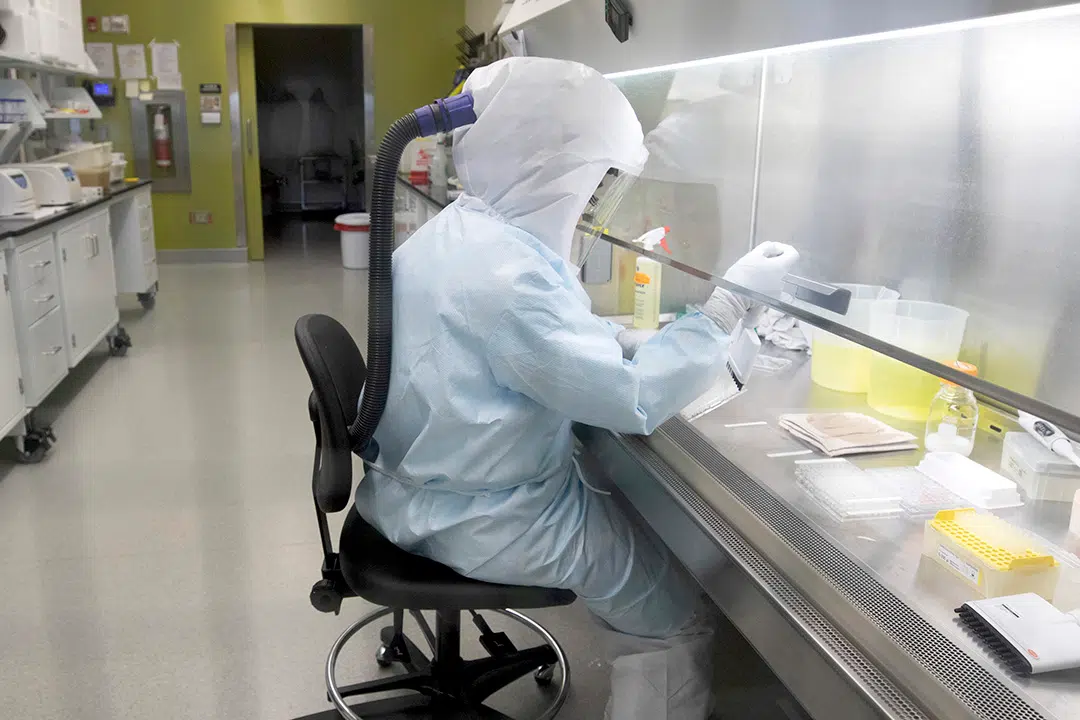Even with the best-case scenarios, a potential COVID-19 vaccine is several months, to a year or more away, says VIDO-InterVac’s Dr. Scott Napper.
In the meantime, scientists like those at Saskatoon’s Vaccine and Infectious Disease Organization – International Vaccine Centre are racing to figure out what kinds of drugs already approved for human use, may be effective at treating the disease at various stages, along with developing a potential human vaccine.
Napper is the newly appointed acting associate director of research; a position he stepped into right around the time the World Health Organization (WHO) officially declared a coronavirus pandemic.
He says their research involves taking molecules for treatments they’ve developed in-house and have received from around the world from facilities that don’t currently have access to the virus. Some of those molecules have already been licensed for human use and could essentially be re-purposed.
“We’re looking at molecules which have some sort of – at least proof of concept evidence that they may be valuable as anti-virals. And we’re doing this in a two-stage process. First, we would screen these in tissue culture models…and then the molecules that are looking promising in those tissue culture models…we can test them within the animal models.”
So far, they’ve found several and have what he calls “fairly strong evidence” from tissue cultures. The tissue culture tests can be completed in less than one week, moving to animal trials very quickly.
“If the answer is out there, and we can help find it, we want to do whatever we can to ensure that happens,” he says.
Vaccines, he explains, have long approval processes, whereas re-purposing a drug that may have already been produced and approved for humans can occur almost immediately.
Some of those are already occurring in large scale human trials in the U.S. involving HIV anti-virals.
“They have some very large trials already underway. So, there should be information that’s emerging quite soon. And some of the initial results look quite promising. Hopefully, that’s something that can buy us some time.”
Other trials involving drugs like Remdesivir which treats Ebola, and Hydroxychloroquine are taking place in both Canada and the U.S. Napper cautions though, against blindly endorsing or promoting any one treatment.
“We need to be making data-based decisions,” he says. “We have to be doing proper trials, we have to be seeing what’s showing clear evidence that they’re safe and effective. Whatever that is, is what we proceed with…But I think there’s reason to be optimistic.”
While there won’t likely be any human trials for treatments in Saskatchewan at this time, the drug screening at VIDO-InterVac is helping other institutions around the world narrow down the possibilities for treatments at various stages of infection.
“Obviously this is a huge crisis at the moment so we need to find something.”







